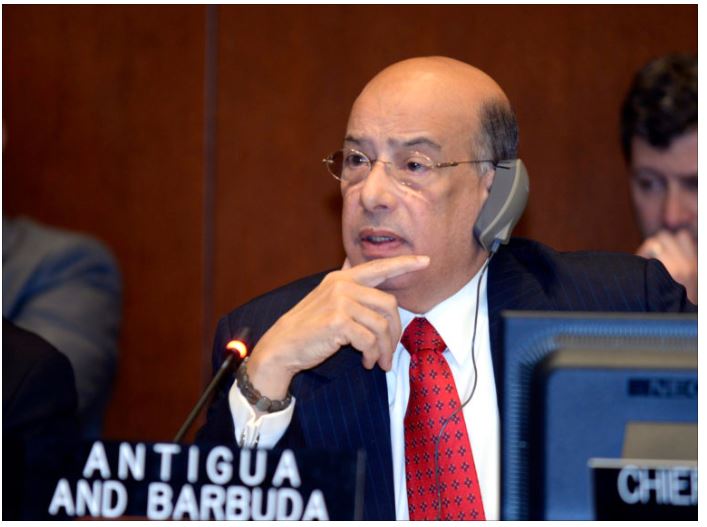By Rebecca Theodore
UNITED NATIONS, Sep 18 2016 – Oceans are warming. Glacial and alpine ice are melting. Human thinking is shrouded by dust clouds. Heat waves magnify the effects. Floods are trailed by disease clusters and a mosquito borne infection is the new existential threat to the UN sustainable development goals.
Undoubtedly, the rapid rise of the Zika virus is turning into a full-on global health crisis.
Whereas, the United Nations sustainable development goals is heralded as the most intricate social progression in UN history, as one where every country benefits from continual, wide-ranging and sustainable economic growth and progress and the obliteration of poverty, hunger and disease, the ascension of the Zika virus upon the scene lament a different tale.
According to the World Health Organization (WHO) there could be up to 4 million cases of the Zika virus and that high global emissions coupled with fast population growth, the number of people exposed to the Zika virus could double to as many as 8 billion or 9 billion by the late of the century.
Moreover, the Center for Disease Control (CDC’s) deputy director, Dr. Anne Schuchat explains that in the continental US, there have been people reportedly infected with the virus including 69 pregnant women.
But it is in the northeast of Brazil, where 135 million people have no running water, access to sewage systems, and where garbage collection is non existent that much attention must be diverted.
Here is witnessed a dramatic rise in the spread of the Zika virus, convoyed by an unparalleled rise in the number of children born with unusually small heads recognized as microcephaly. World Health Organization (WHO) have also linked the Zika virus to Guillain-Barre Syndrome (GBS), a rare neurological syndrome that causes temporary paralysis in adults and other severe fetal brain abnormalities. Further reports indicate that Zika infections are rising into the hundreds of thousands, with hundreds of affected babies, stirring a heated debate on abortion, and planned parenthood funding and increasing the risk of poverty and illness among women.
All the same, the Zika virus has placed the lives of mothers, fetuses and new born at risk in countries where maternal, prenatal and infant health are neglected and underfunded. New information confirms that the US Caribbean territory of Puerto Rico unveils 1,500 new cases of Zika each week. This means that other Caribbean islands stand prone to a widespread transmission of the Zika virus as Caribbean states are cemented by severe limited health care and deteriorating health care systems. Bared in tropical heat that is favorable to the breeding of the mosquito that allegedly produces the virus, more cases of the virus are expected to rise in the Caribbean.
Viewing the vulnerability of the vilified poor’s economic and medical malaise to the Zika virus, it is evident that the mission of the UN sustainable development goals does not afford much reassurance to backward societies at this stage. It would even be good to agree with experts and blame the massive wave of urbanization, Malthusian population growth and international travel as a main reason for the outbreak of the Zika virus. Maybe biodiversity and climate change could also be interjected as another possible variable, but the blatant disregard of social organizations, abortion rights, the gutting of social programs and the upholding of capitalistic hegemony in health care disputes in the United States must also be taken into consideration.
And while all this is taking place social inequality widens.
The blatant rejection of $2 billion to confront the Zika crisis by a US Republican controlled Congress proves that Zika reflects a new racial, class and geographical status based inequality. “Republicans are more interested in attacking Planned Parenthood and flying a Confederate flag, than protecting women and babies from this awful virus.” It also opens the discussion for serious enquiries on the advancement of humanity’s health and progress by leading corporate groups and organizations in the United States, and mirrors the weakness of the United Nations sustainable development goals in fighting contagious diseases in the world at large.
Altogether, the Ziska virus amplifies the problem of the maligned poor’s inaccessibility to health care, and an existential threat to the UN sustainable development goals.
How then can the United Nations succumb to 17 sustainable development goals as a lifeline to poverty and disease while the basic needs of humanity are derailed by a ruling elite and corporate oligarchy that only seek social answers on marketable profit?
Why is there no money to protect mothers, the extreme poor and infants and others from the tragic dangers of the Zika virus when the Sustainable Development Solutions Network estimated that $2-3 trillion a year was available to deliver the needs of the Sustainable development goals?
Simply put, the failure of the United Nations to retort to this public health crisis and the UN’s inability to develop a vaccine to prevent the Zika virus, while at the same time pumping billions into nuclear armaments and scientific and technological discoveries, shows that the Zika virus is an illness entrenched in poverty and social inequality.
It is clear that if the UN must seek to eliminate the circumstances of poverty and suppression through its sustainable development goals, then there must be a halting to the habit of organizing health care and treating epidemics along class and racial lines. The UN must now seek to provide a guideline for pharmaceutical companies to follow in the manufacture and sale of vaccines for contagious diseases. The way in which pharmaceutical companies govern the right to bargain prices in developing a vaccine for the Zika virus further speculate that the disease could be one of capitalistic glory where the stakes are very high.
Consequently, if the United Nations sustainable development goals is to navigate the course of global change to an unprejudiced and justifiable future for all humanity and achieve its 2030 outcome, then although the Marxist dictum of capitalism is worn out in sociological reasoning; the blemishing impact of market forces still replicate the unhealthy supremacy of the capitalist system where health care is concerned. Individual freedom and equality to health care do not echo the same tune to that of the poor and the underprivileged as it does to that of the capitalist because the settings of the marginalized poor are linked to disease and injustice that are rife with peril.
The capitalistic notion on which the sustainable goals are founded is leading to discrimination and unequal concentration of wealth and power especially where health care is concern. Therefore, the UN must pursue a more resolute approach in reorganizing its Sustainable Development goals foundations on a socialist framework to satisfy social wants and not corporate profits.
(Rebecca Theodore is a syndicated op-ed columnist based in Washington DC. She writes on the platform of national security, politics and human rights. Follow her on twitter @rebethd)




